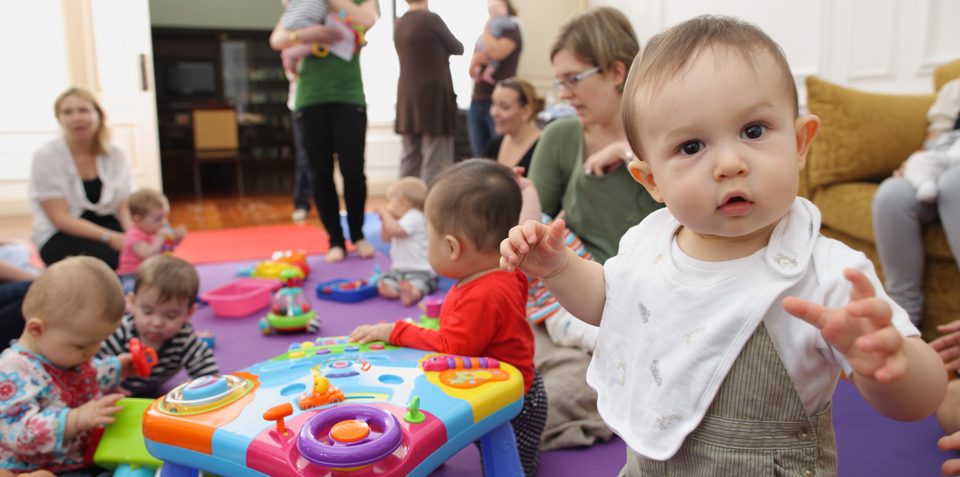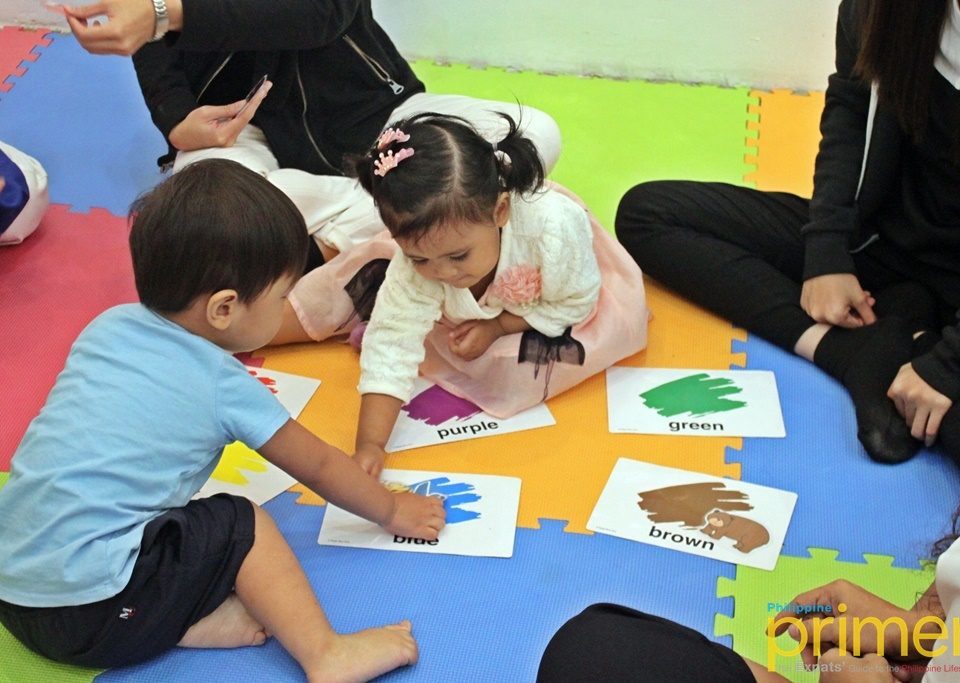Does My Child Have Autism?

Listening Ears wins Best Early Intervention Preschool for Special Needs Children Award 2018
February 2, 2018
The Best Activities for Kids With ADHD
June 13, 2018Recognizing the Early Signs and Symptoms of Autism
As a parent, you never want to believe that your precious bundle has a problem. But when it comes to autism, catching it early—ideally by the age of eighteen months—makes a huge difference. But no matter your child’s age, don’t lose hope. Treatment can reduce the disorder’s effects and help your child learn, grow, and thrive.
What is autism?
Autism is a spectrum of closely related disorders with a shared core of symptoms. Autism spectrum disorder appears in infancy and early childhood, causing delays in many basic areas of development, such as learning to talk, play, and interact with others.
The signs and symptoms of autism vary widely, as do its effects. Some children with autism have only mild impairments, while others have more obstacles to overcome. However, every child on the autism spectrum has problems, at least to some degree, in the following three areas:
- Communicating verbally and non-verbally
- Relating to others and the world around them
- Thinking and behaving flexibly
There are different opinions among doctors, parents, and experts about what causes autism and how best to treat it. There is one fact, however, that everyone agrees on: early and intensive intervention helps. For children at risk and children who show early signs, it can make all the difference.
How parents can spot the warning signs
As a parent, you’re in the best position to spot the earliest warning signs of autism. You know your child better than anyone and observe behaviors and quirks that a pediatrician, in a quick fifteen-minute visit, might not have the chance to see. Your child’s pediatrician can be a valuable partner, but don’t discount the importance of your own observations and experience. The key is to educate yourself so you know what’s normal and what’s not.
Monitor your child’s development. Autism involves a variety of developmental delays, so keeping a close eye on when—or if—your child is hitting the key social, emotional, and cognitive milestones is an effective way to spot the problem early on. While developmental delays don’t automatically point to autism, they may indicate a heightened risk.
Take action if you’re concerned. Every child develops at a different pace, so you don’t need to panic if your child is a little late to talk or walk. When it comes to healthy development, there’s a wide range of “normal.” But if your child is not meeting the milestones for his or her age, or you suspect a problem, share your concerns with your child’s doctor immediately. Don’t wait.
Don’t accept a wait-and-see approach. Many concerned parents are told, “Don’t worry” or “Wait and see.” But waiting is the worst thing you can do. You risk losing valuable time at an age where your child has the best chance for improvement. Furthermore, whether the delay is caused by autism or some other factor, developmentally delayed kids are unlikely to simply “grow out of” their problems. In order to develop skills in an area of delay, your child needs extra help and targeted treatment.
Trust your instincts. Ideally, your child’s doctor will take your concerns seriously and perform a thorough evaluation for autism or other developmental delays. But sometimes, even well-meaning doctors miss red flags or underestimate problems. Listen to your gut if it’s telling you something is wrong, and be persistent. Schedule a follow-up appointment with the doctor, seek a second opinion, or ask for a referral to a child development specialist.
Regression of any kind is a serious autism warning sign
Some children with autism spectrum disorder start to develop communication skills and then regress, usually between 12 and 24 months. For example, a child who was communicating with words such as “mommy” or “up” may stop using language entirely, or a child may stop playing social games he or she used to enjoy such as peek-a-boo, patty cake, or waving “bye-bye.” Any loss of speech, babbling, gestures, or social skills should be taken very seriously, as regression is a major red flag for autism.
Signs and symptoms of autism in babies and toddlers
If autism is caught in infancy, treatment can take full advantage of the young brain’s remarkable plasticity. Although autism is hard to diagnose before 24 months, symptoms often surface between 12 and 18 months. If signs are detected by 18 months of age, intensive treatment may help to rewire the brain and reverse the symptoms.
The earliest signs of autism involve the absence of normal behaviors—not the presence of abnormal ones—so they can be tough to spot. In some cases, the earliest symptoms of autism are even misinterpreted as signs of a “good baby,” since the infant may seem quiet, independent, and undemanding. However, you can catch warning signs early if you know what to look for.
Some autistic infants don’t respond to cuddling, reach out to be picked up, or look at their mothers when being fed.
Early signs
Baby or toddler doesn’t:
- Make eye contact, such as looking at you when being fed or smiling when being smiled at
- Respond to his or her name, or to the sound of a familiar voice
- Follow objects visually or follow your gesture when you point things out
- Point or wave goodbye, or use other gestures to communicate
- Make noises to get your attention
- Initiate or respond to cuddling or reach out to be picked up
- Imitate your movements and facial expressions
- Play with other people or share interest and enjoyment
- Notice or care if you hurt yourself or experience discomfort
Developmental red flags
The following delays warrant an immediate evaluation by your child’s pediatrician:
- By 6 months: No big smiles or other warm, joyful expressions
- By 9 months: No back-and-forth sharing of sounds, smiles, or other facial expressions
- By 12 months: Lack of response to name
- By 12 months: No babbling or “baby talk”
- By 12 months: No back-and-forth gestures, such as pointing, showing, reaching, or waving
- By 16 months: No spoken words
- By 24 months: No meaningful two-word phrases that don’t involve imitating or repeating
Signs and symptoms in older children
As children get older, the red flags for autism become more diverse. There are many warning signs and symptoms, but they typically revolve around impaired social skills, speech and language difficulties, non-verbal communication difficulties, and inflexible behavior.
Signs of social difficulties
- Appears disinterested or unaware of other people or what’s going on around them
- Doesn’t know how to connect with others, play, or make friends
- Prefers not to be touched, held, or cuddled
- Doesn’t play “pretend” games, engage in group games, imitate others, or use toys in creative ways
- Has trouble understanding feelings or talking about them
- Doesn’t seem to hear when others talk to him or her
- Doesn’t share interests or achievements with others (drawings, toys)
Basic social interaction can be difficult for children with autism spectrum disorder. Many kids on the autism spectrum seem to prefer to live in their own world, aloof and detached from others.
Signs of speech and language difficulties
- Speaks in an abnormal tone of voice, or with an odd rhythm or pitch (e.g. ends every sentence as if asking a question)
- Repeats the same words or phrases over and over, often without communicative intent
- Responds to a question by repeating it, rather than answering it
- Uses language incorrectly (grammatical errors, wrong words) or refers to him or herself in the third person
- Has difficulty communicating needs or desires
- Doesn’t understand simple directions, statements, or questions
- Takes what is said too literally (misses undertones of humor, irony, and sarcasm)
Children with autism spectrum disorder have difficulty with speech and language. Often, they start talking late.
Signs of nonverbal communication difficulties
- Avoids eye contact
- Uses facial expressions that don’t match what he or she is saying
- Doesn’t pick up on other people’s facial expressions, tone of voice, and gestures
- Makes very few gestures (such as pointing). May come across as cold or “robot-like.”
- Reacts unusually to sights, smells, textures, and sounds. May be especially sensitive to loud noises. Can also be unresponsive to people entering/leaving, as well as efforts by others to attract the child’s attention.
- Abnormal posture, clumsiness, or eccentric ways of moving (e.g., walking exclusively on tiptoe)
Children with autism spectrum disorder have trouble picking up on subtle nonverbal cues and using body language. This makes the “give-and-take” of social interaction very difficult.
Signs of inflexibility
- Follows a rigid routine (e.g., insists on taking a specific route to school)
- Has difficulty adapting to any changes in schedule or environment (e.g., throws a tantrum if the furniture is rearranged or bedtime is at a different time than usual)
- Unusual attachments to toys or strange objects such as keys, light switches, or rubber bands. Obsessively lines things up or arranges them in a certain order.
- Preoccupation with a narrow topic of interest, often involving numbers or symbols (e.g., memorizing and reciting facts about maps, train schedules, or sports statistics)
- Spends long periods watching moving objects such as a ceiling fan, or focusing on one specific part of an object such as the wheels of a toy car
- Repeats the same actions or movements over and over again, such as flapping hands, rocking, or twirling (known as self-stimulatory behavior, or “stimming”). Some researchers and clinicians believe that these behaviors may soothe children with autism more than stimulate them.




